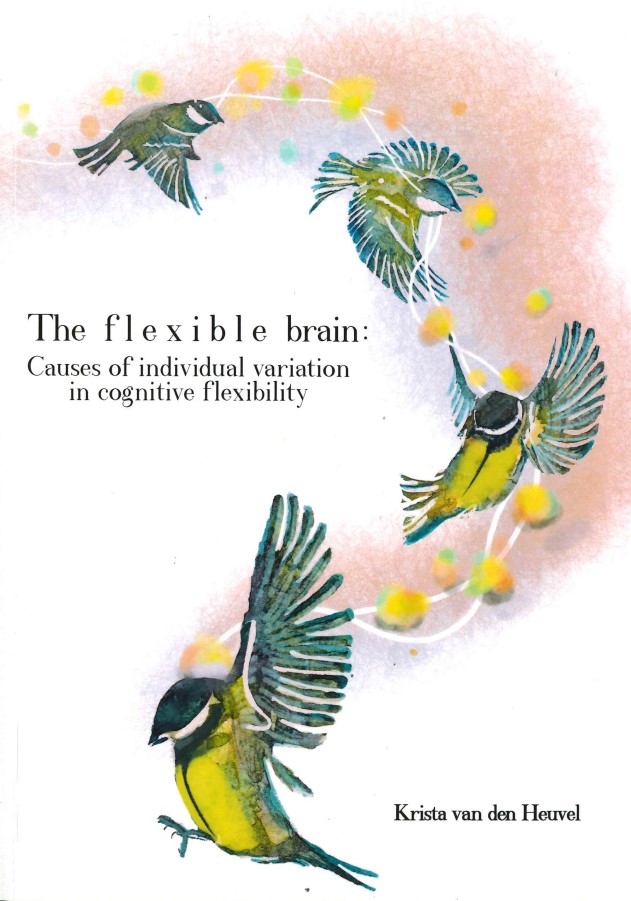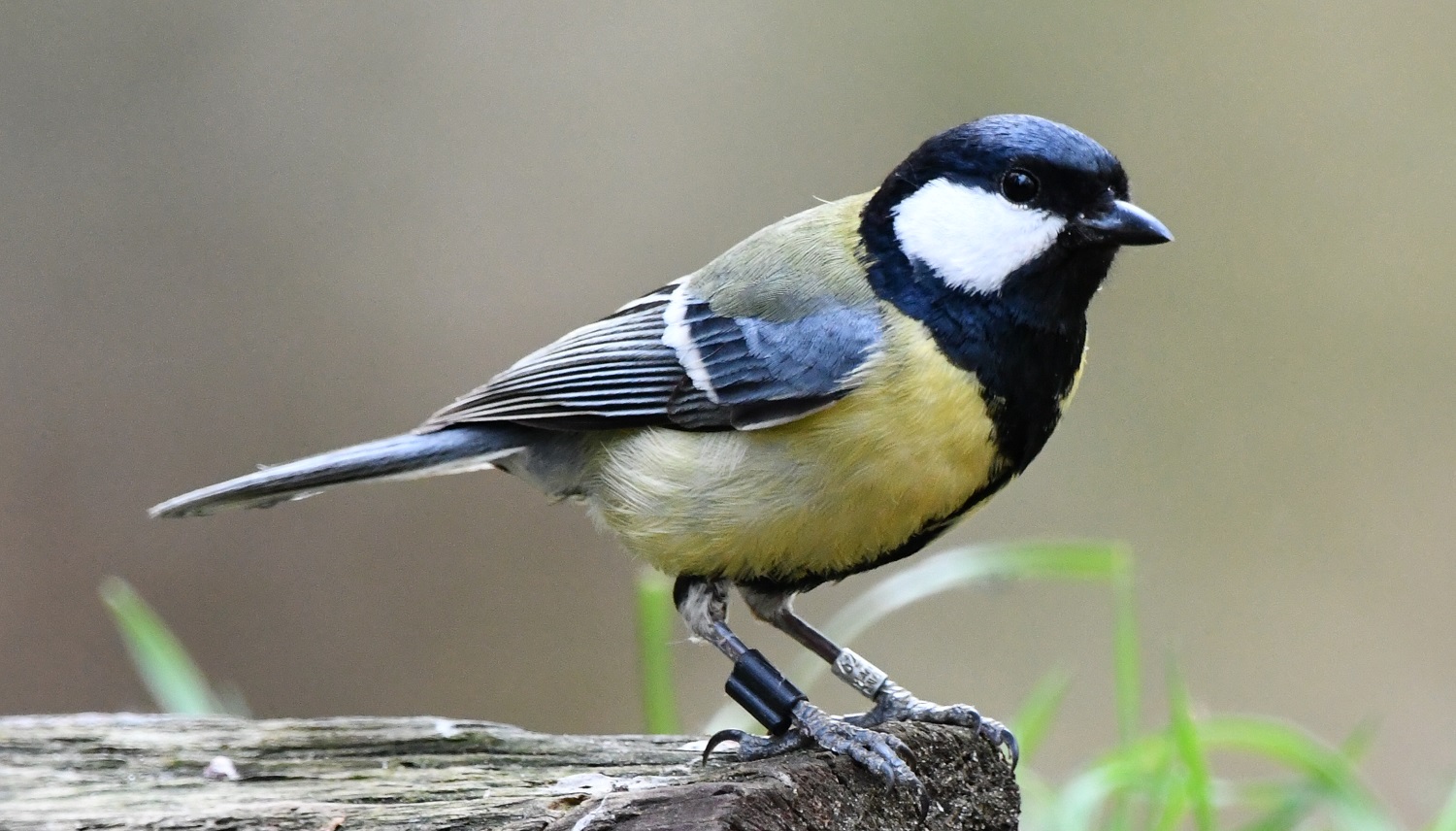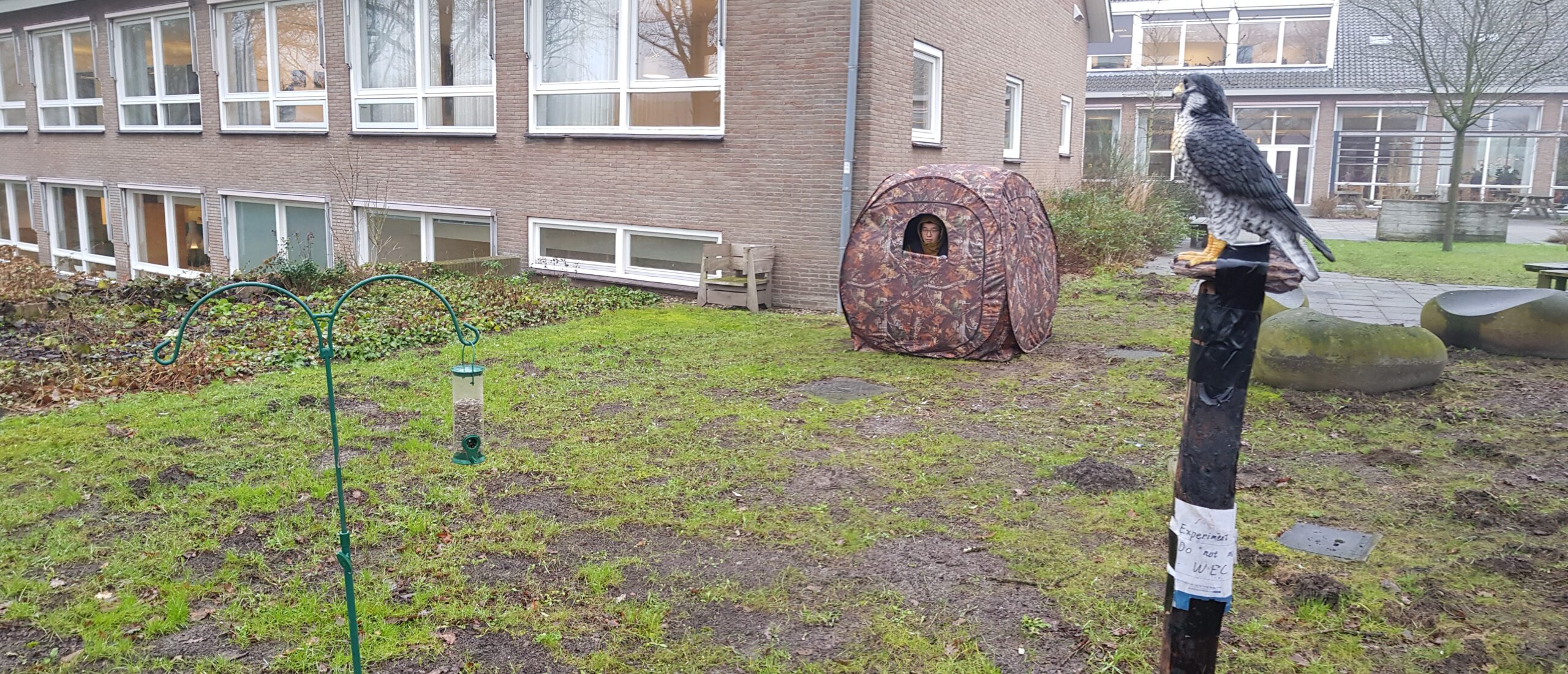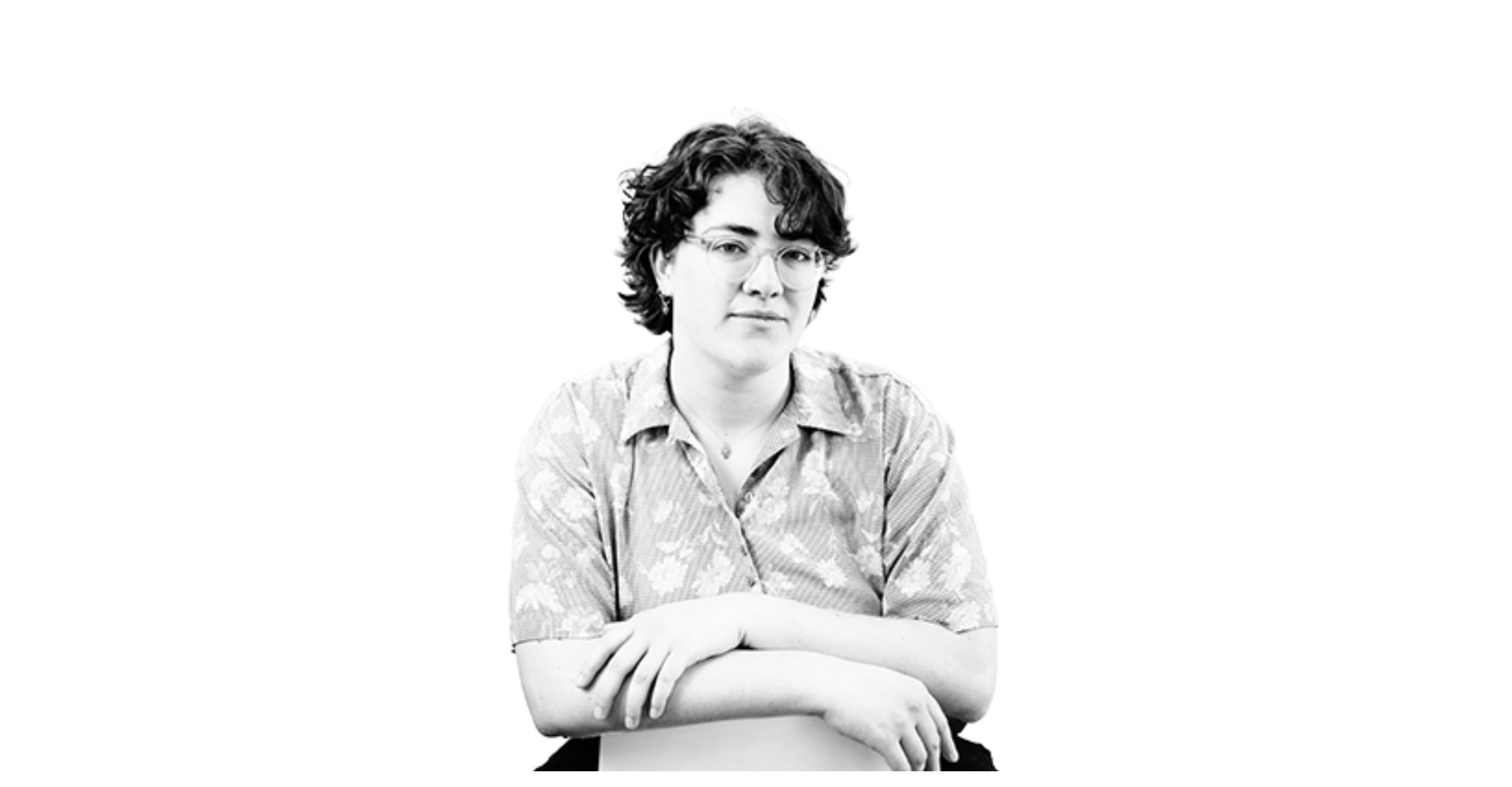Learning is essential to survival. But you also need to be able to alter the behaviour you learned when the conditions change — for example due to climate change. PhD candidate Krista van den Heuvel has shed some light on how that works with her research on the cognitive flexibility of great tits. She received her PhD on 27 June for this research.
Cognitive flexibility is essentially the ability to relearn something, says Van den Heuvel. The official term is ‘reversal learning’. ‘Ordinary (associative) learning means learning and then not forgetting. Reversal learning also involves unlearning, adapting and applying new knowledge.’

Bird table
An everyday example that Van den Heuvel often uses is birds’ feeding behaviour with a bird table in the garden. ‘If you add food every day, the birds will learn they can get something there. If you stop, how quickly do they figure out the pattern has changed — that there’s no longer a reward waiting when they take the trouble to fly to that spot? That is reversal learning.’
The example with the bird table is no coincidence. She developed a test using bird feeders to assess the reversal learning skills of great tits. The tit can choose from three feeders with freeze-dried mealworms, but only one is open. Van den Heuvel: ‘First the bird learns which feeder is open. Then the feeder closes and another one opens, and the reversal learning process starts.’
Hereditary
There are big differences between individual great tits in their ability to adapt to the changes. But strangely enough, experiments with multiple generations of great tits suggest hereditary factors don’t play a role. The offspring of birds that are fast reversal learners are no different in terms of learning capacity from the offspring of slow learners. But if hereditary factors don’t play a role, does that mean reversal learning is not subject to evolution?
‘That seems unlikely,’ agrees Van den Heuvel. ‘I think cognitive flexibility has various components, each of which is genetically determined, but they offset one another. One of those components is the great tit’s personality. We know for definite that this is genetically determined but we don’t see that genetic dependency in the reversal learning test.’
There were other surprising results from the experiments too. Fast learners turned out to be slower at reversal learning, and vice versa. Van den Heuvel says that is not necessarily counter-intuitive. ‘If you are quick to learn a preference, it is harder to unlearn that behaviour. And if you take longer to learn something, you might find reversal learning easier as you have experience with negative rewards and disappointment.’
Tricky
Reversal learning is a tricky phenomenon to study, says Van den Heuvel. ‘It is a property that depends on a lot of other properties. Reversal learning includes learning aspects, as you have to learn something new, but it is also about switching and exploration. And reversal learning involves various levels in the brain. I’ve just been able to shed a little more light on the mystery.’

 Photo Krista van den Heuvel
Photo Krista van den Heuvel 

